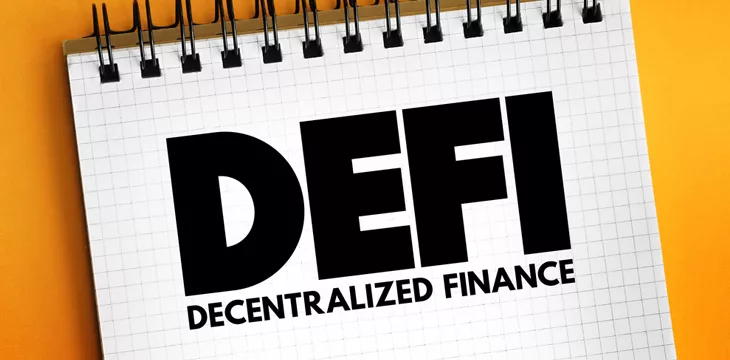|
Getting your Trinity Audio player ready...
|
The International Organization of Securities Commissions (IOSCO), an association that regulates global securities and futures markets, has released nine policy recommendations to address market integrity and investor protection issues in digital asset markets, including Decentralized Finance (DeFi).
“One of IOSCO’s goals is to promote greater consistency with respect to how IOSCO members approach the regulation and oversight of product, services and activities in Crypto Asset Markets, given the cross-border nature of the activities, the risks of regulatory arbitrage and the significant risk of harm to which retail investors continue to be exposed,” read the report, which advocated for a “same activity, same risk, same regulation/regulatory outcome” approach to the digital asset and DeFi markets.
The report laid out nine policy recommendations to address market integrity and investor protection concerns arising from DeFi by supporting greater consistency of regulatory frameworks and oversight in member jurisdictions. The recommendations are the end result of a process that began with a report on DeFi released in March 2022.
The recommendations are relatively straightforward, ranging from the self-explanatory “require clear, accurate, and comprehensive disclosures” (recommendation six) and “promote cross-border cooperation and information sharing” (recommendation eight) to the seemingly self-evident and common sense “enforce applicable laws” (recommendation seven).
Despite the fairly obvious nature of some of the recommendations, the explanations given by IOSCO provide more value. For example, “enforce applicable laws” details how DeFi operations may “seek to structure their arrangements and activities to avoid regulation, offer products and services within a jurisdiction while operating from another jurisdiction.” It suggests potential tools and resources that could, and should, be utilized to mitigate this kind of DeFi regulation avoidance.
Another example is recommendation two, “identify responsible persons,” which urges regulators not to be put off by DeFi’s often difficult-to-pin-down operational structure when it comes to applying rules.
“Some industry participants have asserted that if something is decentralized, it is not, or cannot be, regulated,” said the report. “However, regardless of a governance structure or how ‘decentralized’ the decision-making is, there is usually a Responsible Person(s) that controls, or sufficiently influences, the offer of products, provision of services, or engagement in activities.”
The DeFi recommendations are complementary to a set of policy recommendations for digital asset markets issued on November 16. The 18 digital asset recommendations covered a range of activities but were grouped into six key areas:
- Conflicts of interest arising from vertical integration of activities and functions
- Market manipulation, insider trading, and fraud
- Custody and client asset protection
- Cross-border risks and regulatory cooperation
- Operational and technological risk
- Retail distribution
Both sets of recommendations are addressed to IOSCO’s 231 member jurisdictions, including Australia, Brazil, China, France, Germany, Japan, the United Kingdom, and the United States.
“The two sets of policy recommendations on CDA and DeFi provide a coherent and robust policy framework to tackle the core risks posed by crypto-asset markets,” said Tuang Lee Lim, Chair of the IOSCO Board-Level Fintech Task Force. “This will help facilitate a fair and transparent playing field where responsible innovation can occur while ensuring investor protection and market integrity outcomes.”
With the delivery of the recommendations, IOSCO said it would now shift focus to promote, support, monitor, and assess the adoption and implementation of effective regulatory regimes for digital assets across its member jurisdictions.
Watch: Surgepay to redefine how people do transactions

 07-11-2025
07-11-2025 





